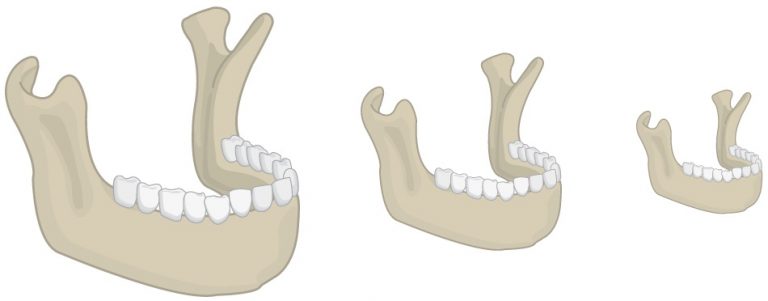
As we progress through the years, many of us start noticing changes in our mouths, shifting and even crowding teeth. If it’s got you wondering, “Is my jaw shrinking?” the answer is yes – it could be.
But why?
There are three known reasons that may cause our jaws to shrink.
Aging: Between 1949 and 1989, Swedish scientists measured the jaws of dental students, starting in their 20s and ending in their 60s. Over that 40-year span, the scientists observed less and less room for teeth in their jaws. In fact, they found that the lower jaw in particular was shrinking. The overall change was only a few millimeters, but those few millimeters had enough effect to cause crowding in the front teeth.
Tooth loss: Your teeth are connected to roots, and your roots are connected to your jaw bone. As your use your teeth, the movement stimulates your jaw bone through your roots, which helps the jaw bone keep a healthy mass. But when your teeth are gone, this stimulation in those areas no longer takes place, which can cause the jaw bones to resorb.
Osteoporosis: Because osteoporosis is a bone loss disease that can be difficult to detect, your dentist may actually be the first health professional to recognize its symptoms. Decreases in the jawbone density and the bone around your teeth can both cause your jaw to shrink.
There are ways to help prevent this. As always, brush and floss daily – and be sure to keep regular dentist appointments. Avoid tobacco products, and maintain a healthy diet. Regular exercise can also help to prevent osteoporosis.
To learn more about how your oral health is connected to your overall health, visit our website.





